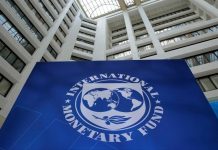Africa-Press – South-Sudan. South Sudan faced significant headwinds in FY2020 and FY21, with the pandemic, floods, and violence flare-ups affecting economic activities. Consequently, the economy is estimated to have contracted by 5.1 percent in FY2020/21 and poverty increased by 2.3 percentage points.
Fast-forward to 2021/22 and the World Bank has projected South Sudan’s economy to contract by 0.8 per cent despite higher oil prices and improving macroeconomic conditions in FY2021/22, with poverty expected to remain stagnant at 80 per cent in the coming years.
April 2022 publication in The Macro Poverty Outlook Indicators report a decline in the economy which could be attributed to the falling oil production, which is projected to decline by 7.2 percent in FY2021/22, and the impact of climate shocks on agriculture.
However, the World Bank states that higher budget revenues are expected to support domestic demand, with growth in the services sector projected to recover to 4.7 percent in FY2021/ 22 from a contraction of 9.7 per cent in previous year.
The report notes that weak institutions and recurring cycles of conflict, pandemics, and floods have curtailed progress in South Sudan and caused a macroeconomic crisis and economic decline with widening fiscal deficits, high and persistent inflation, and spiralling foreign exchange rates.
Oil production shoots
South Sudan’s economy is estimated to have contracted by 5.1 per cent in FY2020/21 and poverty increased by 2.3 percentage points.
Oil production declined by 0.3 per cent, as floods affected production and the COVID-19 pandemic delayed new investments to replace exhausted wells. According to FAO estimates, cereal production declined by 4 percent as flooding precipitated estimated losses of 38,000 tons of cereals and 800,000 livestock.
Successful implementation of the ongoing public financial management reforms and macroeconomic stabilization program, along with prudent use of budgetary resources, are vital to creating opportunities for the achievement of faster and more inclusive growth.
High-frequency data indicates that food prices started increasing in February 2022. However, inflation is expected to decline gradually over the medium term and will benefit from improved fiscal and monetary discipline, exchange rate market liberalization, and deepening public financial management reforms.
Non-oil tax revenue performance is projected at 3.2 per cent of GDP in FY2021/22, higher than the 2.6 per cent of GDP contained in the FY2021/22 budget, reflecting the National Revenue Authorities’ efforts to expand the tax base and the implementation of a range of measures to strengthen its tax administration functions.
The fiscal deficit could narrow to 2.5 per cent of GDP in FY2021/22 from an estimated 6.9 per cent of GDP in FY2020/21, on the back of a strong recovery of international oil prices.
In contrast, the current account is expected to record a surplus of 0.3 per cent of GDP in FY2021/22, from a deficit of 5.5 per cent in FY2020/21, reflecting higher oil export revenues, lower financial transfers to Sudan, and lower import demand for capital projects, especially in the oil sector.
Late last month, the International Monetary Fund indicated that floods had caused large output losses in the oil and agricultural sectors, and resulted in a deepening humanitarian situation in the country.
It is estimated that the global rise in commodity prices due to the war in Ukraine will increase South Sudan’s revenues from oil exports and most people will experience the impact in the form of higher prices for food and fuel.
Africa relies heavily on Russian and Ukrainian exports, but sanctions imposed on Russia have disrupted supply and pushed up prices. Wheat, corn, sunflower oil, and fertilizer are among the products affected, along with oil, compounding the impact of political instability and drought.
“Despite these challenges, the authorities are building on last year’s successful monetary and exchange rate reform that eliminated the gap between parallel and official rates and stabilized the value of the South Sudanese Pound (SSP).
Niko Hobdari, the IMF delegate, said ‘‘removal of restrictions in the foreign exchange market has made it possible for individuals and firms to buy and sell foreign currency at predictable and competitive rates, coupled with prudent control of money circulation by the Bank of South Sudan (BoSS), has resulted to the appreciation of the local currency.’’
The IMF urged the financial sector authorities to increase the transparency of government revenue and spending, including, publishing quarterly budget execution reports and building additional international reserves to insure against future shocks.
For More News And Analysis About South-Sudan Follow Africa-Press






